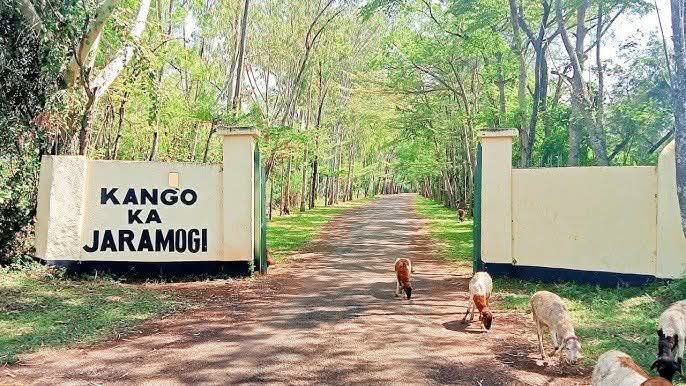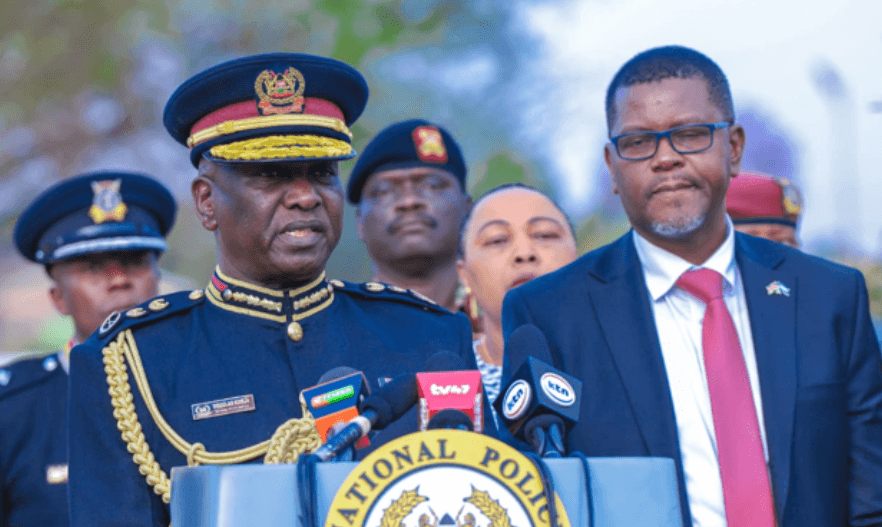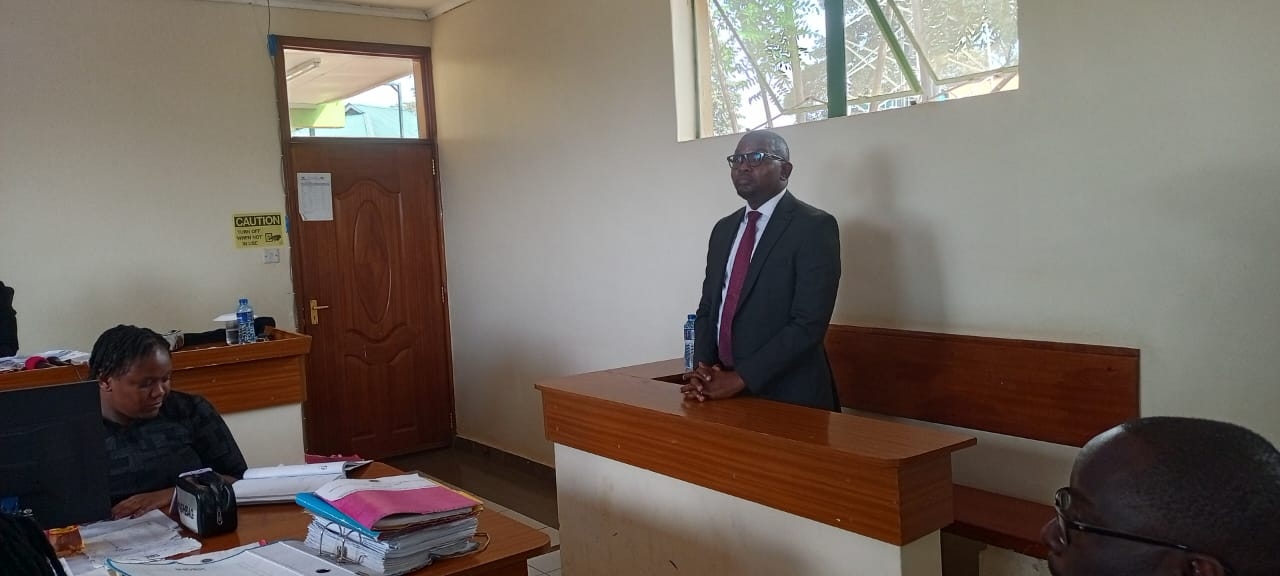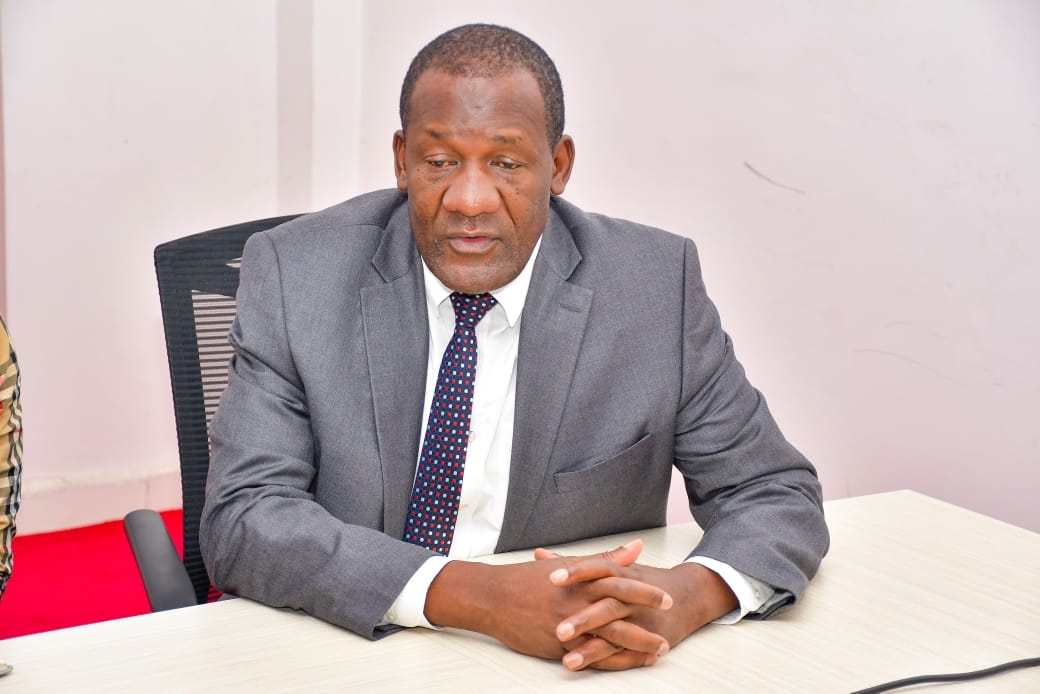The Kenya Kwanza government will double the amount of money allocated to the school feeding program to immediately raise the number of beneficiaries from two million to four million...
Although children are a huge demographic, constituting about 46 per cent (around 24 million) of Kenya's total population, according to UNFPA (2020), their voices are seldom heard on matters affecting them, despite their integral role in nearly all aspects of public policy.
Recently, the National Treasury proposed scrapping off Sh4.9 billion meant for the school feeding programme for the 2024-25 financial year.
Ironically, children’s views were not sought in this public discourse, as to whether they wished for school feeding programme to continue, despite Article 28 (3) of the Children's Act, 2022 guaranteeing their right to express their views in all matters affecting them and have those views given due weight (according to their age and maturity).
The move to scrap the school feeding programme funds contradicts the government's promise to Kenyan children in its campaign manifesto, which stated, "The Kenya Kwanza government will double the amount of money allocated to the school feeding program to immediately raise the number of beneficiaries from two million to four million and provide conditional grants to county governments to extend the program and raise the numbers to eight million in primary and Early Child Development (ECD) schools."
In July 2023, Deputy President Rigathi Gachagua emphasised the administration's commitment to the school meals programme during a High-Level Session on Financing Food Systems Transformation at the United Nations Food Systems Summit+2 in Rome, Italy. He said, "School enrollment has doubled in Kenya because of intervening school feeding programmes."
Sustainable Development Goal 4 aims to ensure inclusive and equitable quality education and promote lifelong learning opportunities for all. This goal remains a distant dream for many children, especially those from arid and semi-arid counties disproportionately affected by climate change-related phenomena such as prolonged droughts and persistent floods, resulting in food insecurity.
There is no greater indignity than children attending school hungry.
In such cases, the school feeding programme has proven to be a beacon of hope for many learners, encouraging school attendance by providing meals, thus addressing hunger and education simultaneously.
As First Lady Mama Rachel Ruto stated during the launch of World Vision Kenya’s Enough campaign in April this year, “There is no greater indignity than children attending school hungry.” A child advocate at the same event echoed her sentiments, stating, “A hungry child cannot concentrate in school and many often drop out in hopes that their parents will get food for them at home. Some girls are married off in exchange for food, leading to teen pregnancies and further exacerbating child malnutrition.”
Despite international advocacy for children's rights through forums and commemorations such as the Day of the African Child and World Children’s Day, the discourse remains predominantly adult-dominated.
This year’s theme for the Day of the African Child, ‘Education for all children in Africa: The time is now,’ underscores the urgent need for inclusive and equitable education for every child.
This theme aligns with the African Union's 2024 theme, 'Educate an African fit for the 21st Century: Building resilient education systems for increased access to inclusive, lifelong, quality, and relevant learning in Africa.'
The event comes at a critical time, as schoolchildren in several parts of the country grapple with hygiene and sanitation issues following heavy rains and floods that began in mid-March. Further, the heavy rains swept away croplands and livestock, the primary livelihood source for many households, threatening food security.
An assessment by the Ministry of Education revealed that floods destroyed at least 62 primary schools, leaving over 15,000 children without a place to learn when schools reopened.
Additionally, the floods raised concerns about water-related diseases due to contamination, with over 20,000 toilet blocks either sunken or severely damaged, posing serious health risks to over 1.5 million schoolchildren.
Africa's greatest asset is its young people. As we come together to commemorate the International Day of the African Child on Sunday, June 16, the government, child-focused institutions and all stakeholders should:
Develop a child-sensitive budget that prioritises the sustained well-being of all children.
Prioritise data collection to ensure real-time data is available on children out of school, identify reasons for exclusion, including disability and marginalisation, and specify measures to ensure all children are in school.
Develop a legislative framework to ensure free and compulsory primary education and ensure the realisation of early childhood and secondary education.
Commit to undertaking quality assessments of education services and indicators on the quality of education to inform decisions that can lead to better educational outcomes.
We must also intentionally listen more to the plight of children, involve them in the government budgeting process and shape the future of education, because the time is now to achieve education for all.
Adults must support children and young people to attain the highest levels of education, and the relevant skills for employment, decent jobs and entrepreneurship.
Child rights advocate, Nairobi
















